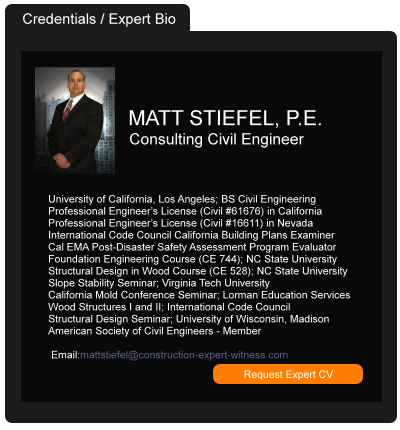Los Angeles Warehousing Mecca Halts Expansion Just as Needs Soar
September 05, 2022 —
Ngai Yeung & Augusta Saraiva - BloombergCommunities in the Inland Empire, the US’s logistics mecca east of Los Angeles, are suspending new warehousing projects to examine the impact from decades of pollution -- putting the industry under pressure when it’s needed most.
This week, the city council for Pomona is set to vote on extending a temporary halt on industrial developments to study the environmental impact, while the nearby city of Norco will decide whether to establish a 45-day moratorium. The actions follow similar freezes by a handful of Southern California cities like Riverside, Colton, Chino and Redlands over the past several years.
Meanwhile, a state-level bill -- which is a long-shot to pass in the legislature but gives a reading of the mood -- proposes banning large industrial construction within 1,000 feet of non-industrial areas such as schools, homes and playgrounds in Riverside and San Bernardino counties, an area that spans 27,000 square miles.
Reprinted courtesy of
Ngai Yeung, Bloomberg and
Augusta Saraiva, Bloomberg Read the court decisionRead the full story...Reprinted courtesy of
Allegations that Carrier Failed to Adequately Investigate Survive Demurrer
July 30, 2014 —
Tred R. Eyerly – Insurance Law HawaiiThe California Court of Appeal reversed the trial court's dismissal of a complaint alleging bad faith for the insurer's failure to adequately investigate the claim. Maslo v. Ameriprise Auto & Home Ins., 2014 Cal. App. LEXIS 564 (Cal. Ct. App. June 27, 2014).
The insured was injured in an auto accident caused by an uninsured motorist. The insured sought policy limits of $250,000 from the insurer. In response, the insurer demanded arbitration. The arbitrator awarded $164,120.91.
The insured sued, alleging the breach of the covenant of good faith and fair dealing. The First Amended Complaint (FAC) alleged the insured was not at fault. The police report found that the uninsured motorist was the sole cause of the accident. The insured provided the police report and medical records to the insurer. When the insured demanded the $250,000 policy limits, the insurer did not respond.
Read the court decisionRead the full story...Reprinted courtesy of
Tred R. Eyerly, Insurance Law HawaiiMr. Eyerly may be contacted at
te@hawaiilawyer.com
Effective October 1, 2019, Florida General Contractors Have a Statutory Right to Recovery of Attorney Fees Against a Defaulted Subcontractor’s Surety
July 01, 2019 —
Warren E. Friedman - Peckar & Abramson, P.C.Florida contractors will soon have a level playing field, at least related to the right to recovery of attorney fees in certain circumstances. Effective October 1, 2019, the Florida statute by which legal fees may be recovered from insurers and sureties was amended to expressly afford that right to contractors.
Florida’s Insurance statute, Chapter 627, affords a right to recovery of attorney fees when a judgment is obtained against an insurer and in favor of any insured pursuant to a policy or contract executed by the insurer. See Fla. Stat. § 627.428. In the construction context, the Florida Legislature has also applied this right to the recovery of attorney fees from sureties, for example in circumstances where suit is brought against a surety under a payment or performance bond. See Fla. Stat. § 627.756.
But there was an oddity to this statute – it specifically provided this right for “owners” and “subcontractors”, but “contractors” were skipped over. For as long as Section 627.756, Florida Statutes has been on the books, the right to recovery of attorney fees against a surety under a payment or performance bond was only afforded to owners, subcontractors, laborers, and materialmen. Specifically, since at least 1977, Section 627.756, Florida Statutes substantially provided as follows (emphasis added):
Section 627.428 applies to suits brought by
owners, subcontractors, laborers, and materialmen against a surety insurer under payment or performance bonds written by the insurer under the laws of this state to indemnify against pecuniary loss by breach of a building or construction contract. Owners, subcontractors, laborers, and materialmen shall be deemed to be insureds or beneficiaries for the purposes of this section.
Read the court decisionRead the full story...Reprinted courtesy of
Warren E. Friedman - Peckar & Abramson, P.C.Mr. Friedman may be contacted at
wfriedman@pecklaw.com
Chinese Drywall Manufacturer Claims Product Was Not for American Market
October 22, 2013 —
CDJ STAFFTaishan Gypsum Co. Ltd. Claimed in a hearing at the Fifth Circuit Court of Appeals that when they sold about $8.5 million of contaminated drywall to Venture Supply Inc. of Virginia, that they had no awareness that the drywall would be sold in the United States. Joe Cyr, an attorney for Taisan told the court that “Venture Supply never said it was going to distribute the goods in Virginia.”
One of the judges on the three-judge panel, Judge Jennifer Walker Elrod, was skeptical of Taishan’s claim, asking, “it was packed and labeled for the Virginia market, isn’t that correct?” When asked by a judge if Taishan was trying to avoid accountability, Cyr said that Tiashan “has not said that it doesn’t want to be accountable for its drywall.” Taishan holds the position that claims against it should be arbitrated in the People’s Republic of China.
Read the court decisionRead the full story...Reprinted courtesy of
The Prolonged Effects on Commercial Property From Extreme Weather
January 29, 2024 —
The Hartford Staff - The Hartford InsightsAs evidenced by the extraordinary heat in the Southwest, a string of tornadoes in South and Midwest, and heavy rains in California and Florida, 2023 was a banner year for extreme weather. However, 2024 may be no different, which means now is the time for businesses to rethink the way they approach volatile weather, as well as the frequency and severity of storms and natural disasters.
The risks and challenges that businesses face as extreme weather becomes stronger and causes more property damage, requires innovative technology with specialized insurance solutions. Through updated building codes, advancements in technology and meaningful infrastructure improvements, businesses can make a difference in protecting their property and reducing losses.
Stronger Building Codes To Withstand Storms
It is not uncommon to see the destruction that a hurricane or tornado leaves behind. However, stronger building codes are one of the best ways to make sure property can withstand catastrophes. Florida for example implemented changes to its building codes after Hurricane Andrew, and then again in 2007 after the Hurricanes of 2004 and 2005. New construction since then has made houses and buildings significantly more hurricane proof. Buildings constructed 30 years ago were likely built with codes that may have neglected the impact of strong winds from an extreme hurricane or significant rainfall that a storm can bring, especially along the Atlantic and Gulf coasts.
Read the court decisionRead the full story...Reprinted courtesy of
The Hartford Staff, The Hartford Insights
California Supreme Court Finds that When it Comes to Intentional Interference Claims, Public Works Projects are Just Different, Special Even
April 20, 2017 —
Garret Murai - California Construction Law BlogEarlier, we reported on a California Court of Appeals decision – Roy Allan Slurry Seal, Inc. v. American Asphalt South, Inc. – which held for the first time that a second-place bidder on a public works contract could sue a winning bidder who failed to pay its workers prevailing wages, under the business tort of intentional interference with prospective economic advantage.
Fast forward nearly two years, several amicus briefs, and “one doghouse”* later and the California Supreme Court has . . . reversed.
The Roy Allan Slurry Seal Case
To catch you up, or rather, refresh your recollection . . .
Between 2009 and 2012, American Asphalt South, Inc. was awarded 23 public works contracts totaling more than $14.6 million throughout Los Angeles, Orange, San Bernardino and San Diego counties. Two of the losing bidders on those projects – Roy Allan Slurry Seal, Inc. and Doug Martin Contracting, Inc. – sued American in each of these counties for intentional interference with prospective economic advantage as well as under the Unfair Practices Act (“UPA”) (Bus. & Prof. Code §§ 17000 et seq.) and the Unfair Competition Law (“UCL”) (Bus. & Prof. Code §17200).
Read the court decisionRead the full story...Reprinted courtesy of
Garret Murai, Wendel Rosen Black & Dean LLPMr. Murai may be contacted at
gmurai@wendel.com
Surety Bond Producers Keep Eye Out For Illegal Waivers
July 01, 2019 —
Richard Korman - Engineering News-RecordThe surety bond industry regularly reminds state and local governments, politely, that public works in all states must involve surety bonds.
That’s the law. And the National Association of Surety Bond Producers, the bond brokers and agents trade group, has been letting state and local officials know, in writing.
Read the court decisionRead the full story...Reprinted courtesy of
Richard Korman, ENRMr. Korman may be contacted at
kormanr@enr.com
Tennessee Looks to Define Improvements to Real Property
January 27, 2020 —
Lian Skaf - The Subrogation StrategistFor subrogation practitioners dealing with an installation-based statute of repose, knowing what is an improvement to real property is the first battle in what can, but does not have to be, a long fight. Like many other states, Tennessee’s statute of repose bars claims based on improvements to real property. Tennessee’s statute of repose runs four years after substantial completion of the improvement. See Tennessee Code Ann. § 28-3-202. In the case of Maddox v. Olshan Found. Repair & Waterproofing Co. of Nashville, L.P., E A, 2019 Tenn.App. LEXIS 464, 2019 WL 4464816, the Court of Appeals of Tennessee examined whether or not the work done by the defendant, Olshan Foundation Repair & Waterproofing Co. of Nashville, L.P., E.A. (Olshan) — which addressed bowing walls, cracks in the foundation and walls and water intrusion — qualified as improvements to real property for the purposes of the statute of repose. The court held that the work by Olshan essentially amounted to repairs, and did not qualify as improvements to real property.
In Maddox, the plaintiff, Rachel Maddox (Maddox), noticed cracking in her home in 2005 and hired Olshan to assess the issue and conduct necessary repairs. Olshan made several recommendations and the parties agreed on Olshan’s proposal for the price of $27,000. From their initial work in 2005 until late 2011, Olshan visited the property several times to address ongoing structural issues with the home. Eventually, eight months after Olshan told Maddox they could not fix the house and failed to return her phone calls, Maddox filed suit, alleging fraud against the company.
After a three-day bench trial, the trial court found in favor of the plaintiff for $187,000, plus $15,0000 in punitive damages. Among other holdings, the court rejected Olshan’s statute of repose defense. Olshan appealed, raising the statute of repose issue again.
Read the court decisionRead the full story...Reprinted courtesy of
Lian Skaf, White and Williams LLPMr. Skaf may be contacted at
skafl@whiteandwilliams.com


































































